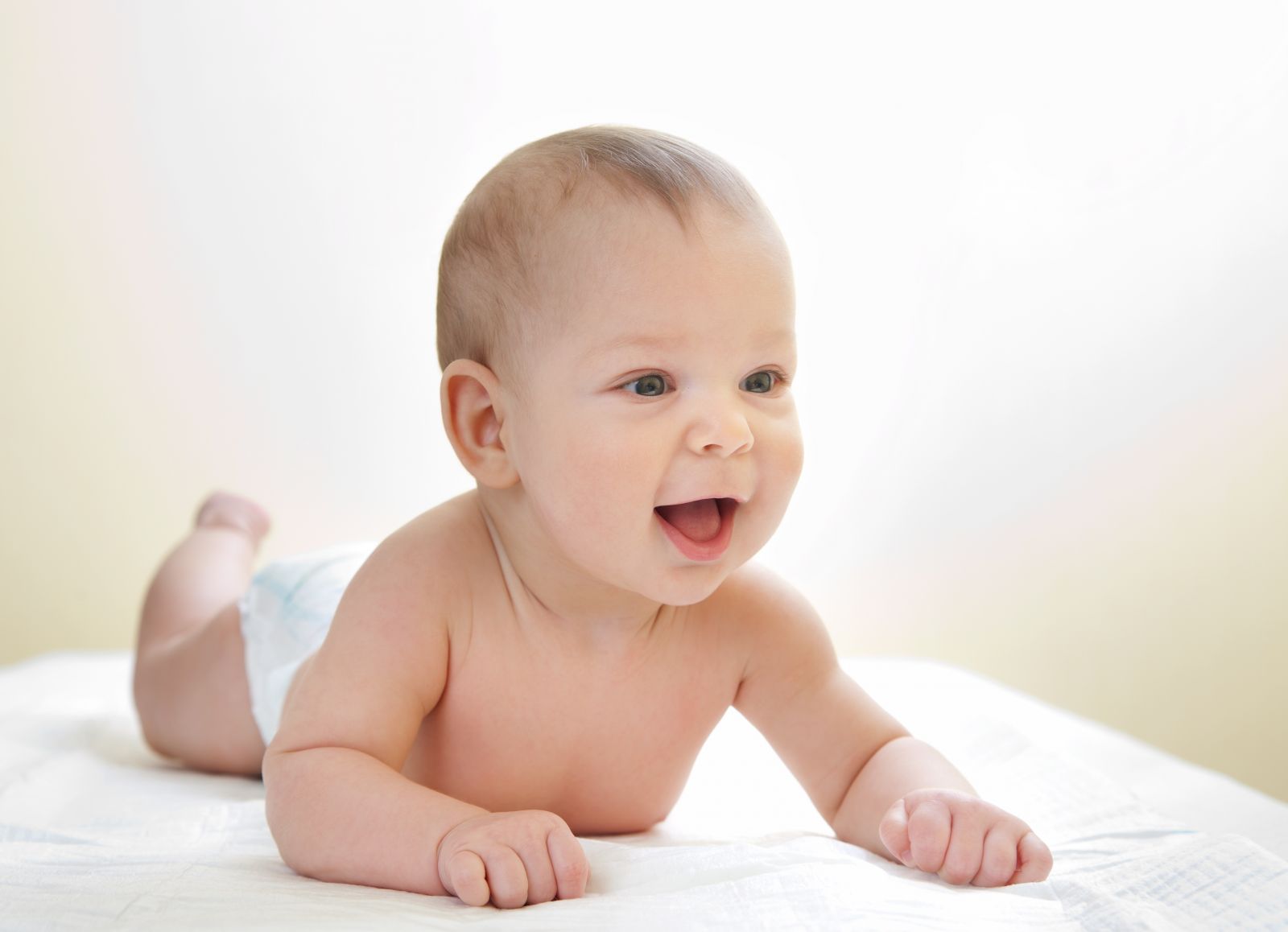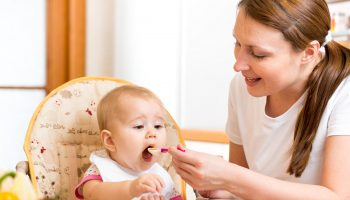
Your 3-month-old is growing bigger and becoming more aware every day. By this age, your baby should be settling into a schedule, and giving you some much-needed rest!
Contents
What can my baby do this month?
Your baby is likely to be babbling away to you by now. You can help to develop her language skills by talking to her throughout the day. Try describing what you’re doing as you do it, even if it’s just loading the washing machine.
You may also notice your baby waving her arms and kicking her legs enthusiastically. And, if you hold her up with her feet touching the floor, she should push down on her legs now.
Your baby can also bring both hands together, open her fists, and play with her fingers. She may even use a closed fist to bat at dangling toys. You can help to develop your baby’s hand-eye coordination by holding out a toy to see if she’ll grasp it.
Sleep
Starting about now, sleep-deprived parents may finally get some respite. By three months to four months, your baby’s sleep patterns should hopefully start to settle down. Some babies this age can even sleep through, though most babies will still wake up for night feeds for at least a few months yet.
If your baby is still keeping you up at night, remember that this stage won’t last forever!
Bond
By the time she’s three months old, your baby will know that you’re special. She’ll probably still smile at strangers, especially when they look her straight in the eye and talk to her. But she’s beginning to sort out who’s who in her life, and she definitely has favourites.
The part of the brain that governs hand-eye coordination and allows your baby to recognise objects (the parietal lobe) is developing rapidly now. And the part of the brain that assists with hearing, language and smell, the temporal lobe, has also become more active. So when your baby hears your voice now, she may look directly at you and start gurgling, or even try to talk back.
Senses
You may notice your baby trying to reach out and touch things close by. You can stimulate her sense of touch by using a variety of materials for play. Try using fake fur, tissue, felt, velvet and towelling, or look for touchy-feely books with a variety of textures.
Your baby loves your touch. Stroking, carrying, massaging, lifting and rocking your baby may help her to relax and may even increase her alertness and attention span.
You and your partner can continue to have skin-to-skin time with your baby for as long as she enjoys it. If you breastfeed, you’ll have the opportunity at every feed to enjoy this close time with her. If you or your partner give your baby a formula feed, undoing your shirt and holding her close as you give her the bottle will also give both of you the benefits of skin-to-skin. You can also share a bath together or simply enjoy lots of close and loving cuddles.
3 Month Old Baby Baby Development
Each baby is unique and meets physical milestones at his or her own pace. These are simply guidelines to what your baby has the potential to do, if not right now, then soon.
If your baby was born prematurely (before 37 weeks of pregnancy), you’ll probably find that she needs more time before she can do the same things as other babies her age. That’s why most babies born prematurely are given two ages by their doctors:
- Chronological age, which is calculated from your baby’s date of birth.
- Corrected age, which is calculated from your baby’s due date.
You should measure your premature baby’s development against her corrected age, not her actual date of birth. Your doctor and health visitor will also assess your premature baby’s development from the time she should have been born.
Other 3 month old baby developments
Second round of Immunisations
At 3 months old your baby can have a second round of immunisations which include the following:
Rotavirus
A highly infectious virus that can cause gastroenteritis in your baby
DTaP/IPV/Hib
Protects against diphtheria, tetanus, whooping cough, polio and haemophilus influenza
Pneumococcal Conjugate Vaccine (PCV)
This protects against pneumococcal infections including pneumonia, meningitis and bronchitis
How you can help your baby develop in month three
Try putting something brightly-coloured, like a rattle, into their hands – they may be able to hold it for a few seconds. If you try the same trick with a crinkly toy, see what they do when it makes a noise
If your baby didn’t like the baby gym last month and voiced their dislike by screaming the house down every time you put them under it (and this is pretty common), try again now. You might be surprised. Every toy has its moment
Read to your baby. Showing your baby simple board books even at this young age is fantastic for tuning their ear in to the sounds and rhythm of language. If you’ve settled on a bedtime routine, add story time in
Wrist rattles will help your baby develop more hand-eye co-ordination and muscle control as they work out how to operate it.





